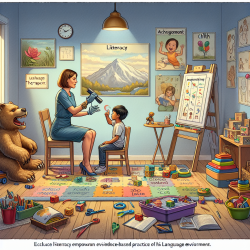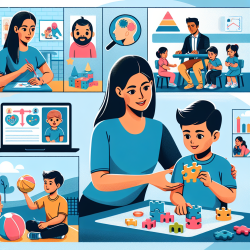Introduction
The COVID-19 pandemic has accelerated the adoption of virtual education across various sectors, including global health. The research article "Establishing a Virtual Global Health Education Partnership: The Cleveland-Cusco Connection" provides insights into how virtual global health education can be effectively implemented to enhance practitioner skills. This blog explores the key outcomes of the research and how practitioners can apply these findings to improve their skills and encourage further research in virtual health education.
Key Outcomes of the Research
The Cleveland-Cusco Connection (CCC) elective was developed to continue global health education during the pandemic. The program connected medical students from Case Western Reserve University (CWRU) and Universidad Nacional de San Antonio Abad del Cusco (UNSAAC) through a virtual platform. The research highlighted several outcomes that can be beneficial for practitioners:
- Enhanced Understanding of Health Systems: The program significantly improved students' understanding of the Peruvian healthcare system, demonstrating the potential of virtual platforms to bridge knowledge gaps across borders.
- Peer Learning: Students found learning from peers effective and enjoyable, emphasizing the importance of collaborative learning in virtual settings.
- Cost-Effectiveness: Virtual programs reduce the costs associated with international travel, making global health education more accessible and equitable.
- Flexibility and Accessibility: Virtual platforms offer flexibility in scheduling and access to a wide range of resources, accommodating diverse learning needs.
Implementing Research Outcomes
Practitioners can enhance their skills by integrating the following strategies based on the research outcomes:
- Adopt Virtual Platforms: Incorporate virtual platforms to facilitate international collaborations and broaden perspectives on global health issues.
- Encourage Peer Learning: Create opportunities for peer-to-peer learning, allowing practitioners to learn from diverse experiences and knowledge bases.
- Focus on Cost-Effective Solutions: Leverage virtual education to reduce costs and increase accessibility to global health education.
- Promote Language Skills: Encourage language learning to overcome barriers in international collaborations and enhance communication skills.
Encouraging Further Research
While the CCC elective provides a valuable framework, further research is necessary to explore the full potential of virtual global health education. Practitioners are encouraged to investigate the following areas:
- Longitudinal Impact: Study the long-term impact of virtual education on practitioner skills and career development.
- Diverse Disciplines: Explore the applicability of virtual education across different healthcare disciplines and settings.
- Technology Integration: Investigate innovative technologies that can enhance the virtual learning experience.
Conclusion
The research on the Cleveland-Cusco Connection elective highlights the transformative potential of virtual global health education. By adopting the outcomes of this research, practitioners can enhance their skills, foster international collaborations, and contribute to the advancement of global health education. To read the original research paper, please follow this link: Establishing a Virtual Global Health Education Partnership: The Cleveland-Cusco Connection.










